|
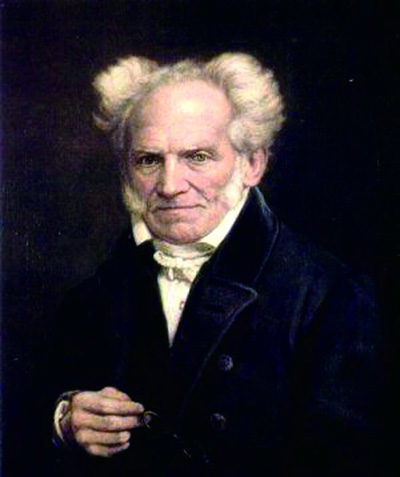  VW Touareg VW Touareg
Arthur Schopenhauer (22 February 1788 – 21 September 1860) was a German philosopher best known for his book, The World as Will and Representation, in which he claimed that our world is driven by a continually dissatisfied will, continually seeking satisfaction. Influenced by Eastern thought, he maintained that the "truth was recognized by the sages of India";consequently, his solutions to suffering were similar to those of Vedantic and Buddhist thinkers (i.e. asceticism); his faith in "transcendental ideality" led him to accept atheism and learn from Christian philosophy.
At age 25, he published his doctoral dissertation, On the Fourfold Root of the Principle of Sufficient Reason, which examined the four distinct aspects of experience in the phenomenal world; consequently, he has been influential in the history of phenomenology. He has influenced a long list of thinkers, including Friedrich Nietzsche, Richard Wagner, Ludwig Wittgenstein, Erwin Schrödinger, Albert Einstein, Sigmund Freud, Otto Rank, Carl Jung, Joseph Campbell, Leo Tolstoy, Thomas Mann, and Jorge Luis Borges.
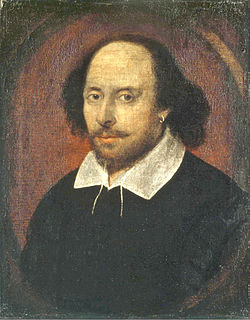 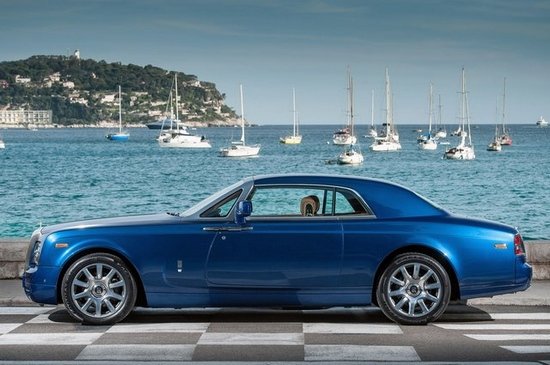 Rolls-Royce Phantom Rolls-Royce Phantom
William Shakespeare (26 April 1564 (baptised) – 23 April 1616) was an English poet and playwright, widely regarded as the greatest writer in the English language and the world's pre-eminent dramatist. He is often called England's national poet and the "Bard of Avon". His extant works, including some collaborations, consist of about 38 plays, 154 sonnets, two long narrative poems, two epitaphs on a man named John Combe, one epitaph on Elias James, and several other poems. His plays have been translated into every major living language and are performed more often than those of any other playwright.
Shakespeare was a respected poet and playwright in his own day, but his reputation did not rise to its present heights until the 19th century. The Romantics, in particular, acclaimed Shakespeare's genius, and the Victorians worshipped Shakespeare with a reverence that George Bernard Shaw called "bardolatry". In the 20th century, his work was repeatedly adopted and rediscovered by new movements in scholarship and performance. His plays remain highly popular today and are constantly studied, performed, and reinterpreted in diverse cultural and political contexts throughout the world.
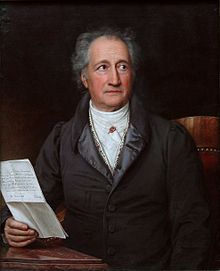  BMW X6 BMW X6
Johann Wolfgang von Goethe (German: [ˈjoːhan ˈvɔlfɡaŋ fɔn ˈɡøːtə] (listen), 28 August 1749 – 22 March 1832) was a German writer, artist, and politician. His body of work includes epic and lyric poetry written in a variety of metres and styles; prose and verse dramas; memoirs; an autobiography; literary and aesthetic criticism; treatises on botany, anatomy, and colour; and four novels. In addition, numerous literary and scientific fragments, and more than 10,000 letters written by him are extant, as are nearly 3,000 drawings.
Arthur Schopenhauer cited Wilhelm Meister's Apprenticeship as one of the four greatest novels ever written[citation needed] and Ralph Waldo Emerson selected Goethe, along with Plato, Napoleon, and William Shakespeare, as one of six "representative men" in his work of the same name. Goethe's comments and observations form the basis of several biographical works, most notably Johann Peter Eckermann's Conversations with Goethe. There are frequent references to Goethe's various sayings and maxims throughout the course of Friedrich Nietzsche's work and there are numerous allusions to Goethe in the novels of Hermann Hesse and Thomas Mann. Goethe's poems were set to music throughout the nineteenth century by a number of composers, including Ludwig van Beethoven, Franz Schubert, Robert Schumann, Johannes Brahms, Hugo Wolf, and Gustav Mahler.
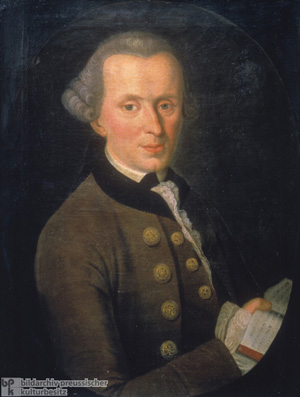  Audi Q7 Audi Q7
Immanuel Kant(German: [ɪˈmaːnu̯eːl kant]; 22 April 1724 – 12 February 1804) was a German philosopher from Königsberg in Prussia (today Kaliningrad, Russia) who researched, lectured and wrote on philosophy and anthropology during the Enlightenment at the end of the 18th century.
Kant's major work, the Critique of Pure Reason (Kritik der reinen Vernunft, 1781), aimed to unite reason with experience to move beyond what he took to be failures of traditional philosophy and metaphysics. He hoped to end an age of speculation where objects outside experience were used to support what he saw as futile theories, while opposing the skepticism of thinkers such as Hume.
He stated:
It always remains a scandal of philosophy and universal human reason that the existence of things outside us ... should have to be assumed merely on faith, and that if it occurs to anyone to doubt it, we should be unable to answer him with a satisfactory proof.
Kant proposed a "Copernican Revolution-in-reverse", saying that:
Up to now it has been assumed that all our cognition must conform to the objects; but ... let us once try whether we do not get farther with the problems of metaphysics by assuming that the objects must conform to our cognition.
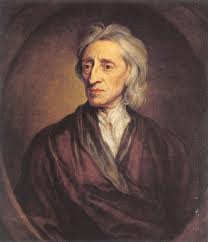 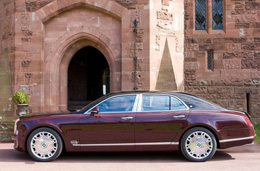 Bentley Mulsanne Bentley Mulsanne
John Locke (1632–1704) was one of the greatest philosophers in Europe at the end of the seventeenth century. Locke grew up and lived through one of the most extraordinary centuries of English political and intellectual history. It was a century in which conflicts between Crown and Parliament and the overlapping conflicts between Protestants, Anglicans and Catholics swirled into civil war in the 1640s. With the defeat and death of Charles I, there began a great experiment in governmental institutions including the abolishment of the monarchy, the House of Lords and the Anglican church, and the establishment of Oliver Cromwell's Protectorate in the 1650s. The collapse of the Protectorate after the death of Cromwell was followed by the Restoration of Charles II — the return of the monarchy, the House of Lords and the Anglican Church. This period lasted from 1660 to 1688. It was marked by continued conflicts between King and Parliament and debates over religious toleration for Protestant dissenters and Catholics. This period ends with the Glorious Revolution of 1688 in which James II was driven from England and replaced by William of Orange and his wife Mary. The final period during which Locke lived involved the consolidation of power by William and Mary, and the beginning of William's efforts to oppose the domination of Europe by the France of Louis XIV, which later culminated in the military victories of John Churchill — the Duke of Marlborough.
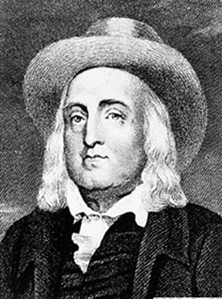  Jaguar XJL Jaguar XJL
Jeremy Bentham(15 February 1748 OS – 6 June 1832) was a British philosopher, jurist and social reformer. He is regarded as the founder of modern utilitarianism.
Bentham became a leading theorist in Anglo-American philosophy of law, and a political radical whose ideas influenced the development of welfarism. He advocated individual and economic freedom, the separation of church and state, freedom of expression, equal rights for women, the right to divorce, and the decriminalising of homosexual acts. He called for the abolition of slavery, the abolition of the death penalty, and the abolition of physical punishment, including that of children.[3] Though strongly in favour of the extension of individual legal rights, he opposed the idea of natural law and natural rights, calling them "nonsense upon stilts".
Bentham's students included his secretary and collaborator James Mill, the latter's son, John Stuart Mill, the legal philosopher John Austin, as well as influential political figures such as Robert Owen, one of the founders of modern socialism. Bentham has been described as the "spiritual founder" of University College London, though he played little direct part in its foundation. In recent years he has become known as an early advocate of animal rights.
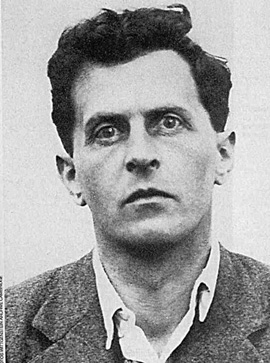  Range Rover Range Rover
Ludwig Josef Johann Wittgenstein (26 April 1889 – 29 April 1951) was an Austrian-British philosopher who worked primarily in logic, the philosophy of mathematics, the philosophy of mind, and the philosophy of language. He was professor in philosophy at the University of Cambridge from 1939 until 1947. In his lifetime, he published just one book review, one article, a children's dictionary, and the 75-page Tractatus Logico-Philosophicus (1921). In 1999, his posthumously published Philosophical Investigations (1953) was ranked as the most important book of 20th-century philosophy by the Baruch Poll, standing out as "...the one crossover masterpiece in twentieth-century philosophy, appealing across diverse specializations and philosophical orientations". Philosopher Bertrand Russell described him as "the most perfect example I have ever known of genius as traditionally conceived, passionate, profound, intense, and dominating"
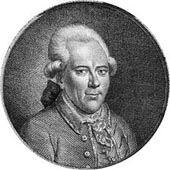 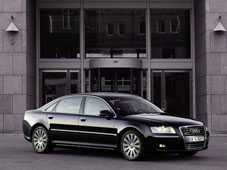 Audi A8L Audi A8L
Georg Christoph Lichtenberg (1 July 1742 – 24 February 1799) was a German scientist, satirist and Anglophile. As a scientist, he was the first to hold a professorship explicitly dedicated to experimental physics in Germany. Today, he is remembered for his posthumous notebooks, which he himself called Sudelbücher, a description modeled on the English bookkeeping term "waste books",and for his discovery of the strange treelike patterns now called Lichtenberg figures.
As a physicist, today he is remembered for his investigations in electricity, for discovering branching discharge patterns on dielectrics now called Lichtenberg figures. In 1777, he built a large electrophorus in order to generate static electricity through induction.One of the largest ever made, it was 6 feet (2 m) in diameter and could produce 15 inch (38 cm) sparks. With it, he discovered the basic principle of modern Xerography copy machine technology. This discovery was also the forerunner of modern day Plasma Physics.By discharging a high voltage point near an insulator, he was able to record strange tree-like patterns in fixed dust. These Lichtenberg figures are considered today to be examples of fractals.
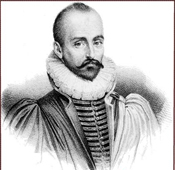  Citrone C5 Citrone C5
Michel Eyquem de Montaigne (February 28, 1533–September 13, 1592) was one of the most influential writers of the French Renaissance. Montaigne is known for popularizing the essay as a literary genre. He became famous for his effortless ability to merge serious intellectual speculation with casual anecdote and autobiography — and his massive volume Essais (translated literally as "Attempts") contains, to this day, some of the most widely influential essays ever written. Montaigne had a direct influence on writers the world over, including Blaise Pascal, René Descartes, Ralph Waldo Emerson, Stefan Zweig, Friedrich Nietzsche, Jean-Jacques Rousseau, Isaac Asimov, Eric Hoffer, and perhaps William Shakespeare.
He is most famously known for his skeptical remark, 'Que sais-je?' ('What do I know?'). Remarkably modern even to readers today, Montaigne's attempt to examine the world through the lens of the only thing he can depend on implicitly — his own judgment — makes him more accessible to modern readers than any other author of the Renaissance. Much of modern literary non-fiction has found inspiration in Montaigne and writers of all kinds continue to read him for his masterful balance of intellectual knowledge and personal story-telling.
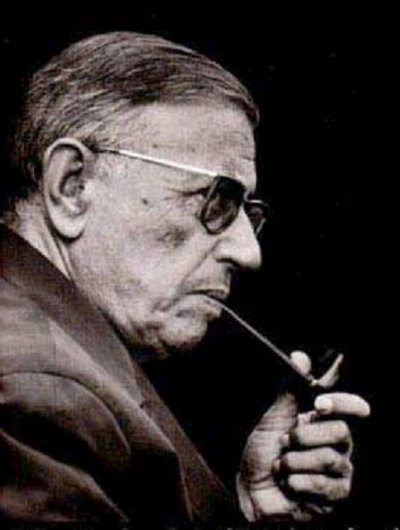  Peugeot RCZ Peugeot RCZ
Jean-Paul Charles Aymard Sartre (21 June 1905 – 15 April 1980) was a French existentialist philosopher, playwright, novelist, screenwriter, political activist, biographer, and literary critic. He was one of the key figures in the philosophy of existentialism, and one of the leading figures in 20th-century French philosophy and Marxism. His work has also influenced sociology, critical theory, post-colonial theory, and literary studies, and continues to influence these disciplines. Sartre has also been noted for his relationship with the prominent feminist theorist Simone de Beauvoir.
He was awarded the 1964 Nobel Prize in Literature and refused it, saying that he always declined official honors and that "a writer should not allow himself to be turned into an institution."
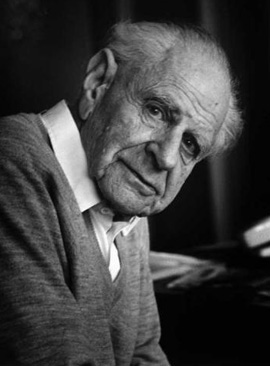  GM Buick GL8 GM Buick GL8
Sir Karl Raimund Popper, (28 July 1902 – 17 September 1994) was an Austro-Britishphilosopher and professor at the London School of Economics. He is generally regarded as one of the greatest philosophers of science of the 20th century. He also wrote extensively on social and political philosophy. In 1992 he was awarded the Kyoto Prize in Arts and Philosophy for "symbolizing the open spirit of the 20th century" and for his "enormous influence on the formation of the modern intellectual climate".
Popper is known for his attempt to repudiate the classical observationalist/inductivist form of scientific method in favour of empirical falsification. He is also known for his opposition to the classical justificationist account of knowledge which he replaced with critical rationalism, "the first non justificational philosophy of criticism in the history of philosophy". In political discourse, he is known for his vigorous defence of liberal democracy and the principles of social criticism that he came to believe made a flourishing "open society" possible.
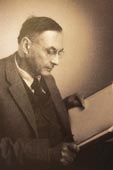  Porsche Cayenne Porsche Cayenne
   
Hudec's works in shanghai
L. E. Hudec (1893-1958)
Born in the town of Besztercebánya in the Austro-Hungarian Empire (now part of Slovakia) on January 8, 1893, Laszlo Ede Hudec grew up thoroughly immersed in the world of architecture and building. His father, Gyorgy, an architect who ran a construction business, encouraged him to work in all aspects of the trade, even employing the 12 year old Laszlo in his office. Graduating as an architect from the Royal University in Budapest in 1914, Laszlo immediately enlisted in the Austro-Hungarian army. In 1916, he was captured on the Russian front and sent to prison camp in Siberia from which he escaped in 1918, making his way through China to Shanghai where he joined the American architectural firm of R. A. Curry. As Associate Architect to Curry, Hudec was re, sponsible for the design of numerous residences and buildings such as The American Club, McTyeire School and Normandie Apartment building.
In 1925, Hudec opened his own practice, and went on to become one of the most celebrated and prolific architects in Shanghai in the 1930s. Between 1918 and 1947, he designed over 65 buildings in Shanghai. From 1932 to 1947, his office was located on the 8th floor of the China Baptist Publication Building at 209 Yuanmingyuan Road. In that period of time he has served as the first honorary consul for Hungary.
Hudec, his German wife Giselle and their three children, Martin, Theodore and Alessa, lived in houses designed by Hudec at 17 Lucerne Rd ( Lixi Road ) and 57 Columbia Rd (Panyu road) before moving to an apartment in Hubertus Court (Dahua Hotel) in 1937.
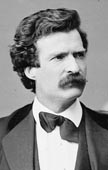  GM Park Avenue GM Park Avenue
Mark Twain
Samuel Langhorne Clemens (November 30, 1835 – April 21, 1910), better known by the pen name Mark Twain, was an American author and humorist. Twain is most noted for his novels Adventures of Huckleberry Finn, which has since been called the Great American Novel, and The Adventures of Tom Sawyer. He is extensively quoted. During his lifetime, Twain became a friend to presidents, artists, industrialists, and European royalty.
Twain enjoyed immense public popularity. His keen wit and incisive satire earned him praise from both critics and peers. William Faulkner called Twain "the father of American literature".He was fascinated with science and scientific inquiry. He developed a close and lasting friendship with Nikola Tesla, and the two spent much time together in Tesla's laboratory.
Twain himself patented three inventions, including an "Improvement in Adjustable and Detachable Straps for Garments" (to replace suspenders) and a , history trivia game. Most commercially successful was a self-pasting scrapbook; a dried adhesive on the pages only needed to be moistened before use.His book A Connecticut Yankee in King Arthur's Court features a time traveler from contemporary America, using his knowledge of science to introduce modern technology to Arthurian England. Some suggest this makes Twain a pioneer in the science fiction genre.
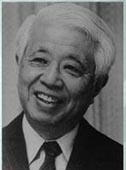  Toyota Estima Toyota Estima
Yoshinobu Ashihara, Architect, 1918-2003. Born in Tokyo, Ashihara graduated from the University of Tokyo and received his master's degree in architecture from Harvard University. In 1956, he established his own firm Yoshinobu Ashihara Architect and Associates. He was professor at Hosei University, Musashino Art University, and University of Tokyo and served as president of the Japan Institute of Architects and also of the Architectural Institute of Japan.
His works, many of which received awards, include the Komazawa Olympic Gymnasium, the Sony Building, the Japan Pavilion at the Montreal Expo, the National Museum of Japanese History, and Tokyo Metropolitan Art Space. His books include The Aesthetic Townscape (winner of the Mainichi Publishing Culture Award) and The Hidden Order:Tokyo Through the Twentieth Century.
He received his doctoral degree from the University of Tokyo and was later appointed, Hono, rary Professor there. He was , awarded the Order of the Sacred Treasure and the Order of Culture.
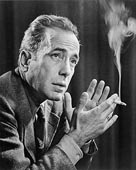  Buick Enclave Buick Enclave
Humphrey DeForest Bogart (December 25, 1899 – January 14, 1957) was an American actor.
After trying various jobs, Bogart began acting in 1921 and became a regular in Broadway productions in the 1920s and 1930s. When the stock market crash of 1929 reduced the demand for plays, Bogart turned to film. His first great success was as Duke Mantee in The Petrified Forest (1936), and this led to a period of typecasting as a gangster in B-movies. His breakthrough came in 1941, with High Sierra (1941) and The Maltese Falcon (1941). The next year, his performance as Rick Blaine in Casablanca (1942) raised him to the peak of his profession and at the same time, cemented his trademark film persona, that of the hard-boiled cynic who ultimately shows his noble side. Other successes followed, including To Have and Have Not (1944), The Big Sleep (1946), Dark Passage (1947), and Key Largo (1948), with his wife Lauren Bacall; The Treasure of the Sierra Madre (1948); The African Queen (1951), for which he won his only Academy Award; Sabrina (1954), and The Caine Mutiny (1954). During a film career of almost thirty years, he appeared in 75 feature films.
At the time of his death from cancer in 1957, Bogart was one of the most respected figures in American cinema. Since his death, his persona and film performances have been considered as having a lasting impact and have led to him being described as a cultural icon. In 1997, Entertainment Weekly magazine named him the number one movie legend of all time. In 1999, the American Film Institute ranked him the Greatest Male Star of All Time.
We created this topic to link all the worldwide great minds,culture,science and technology,car industry together.Let's enjoy and respect each nation's great achievements and honor in the history of human beings--by team of Star team,20th Sep 2009
|
